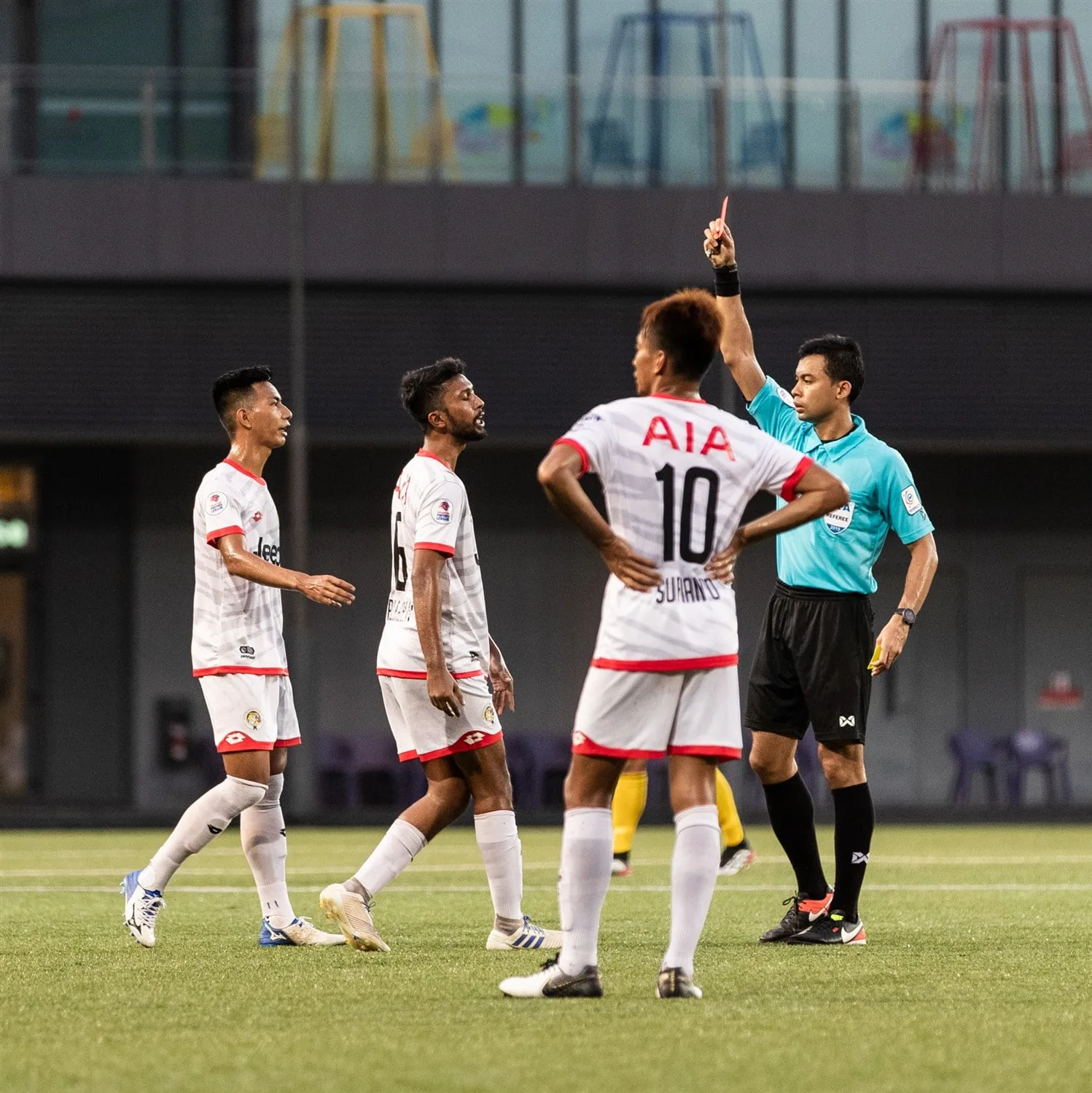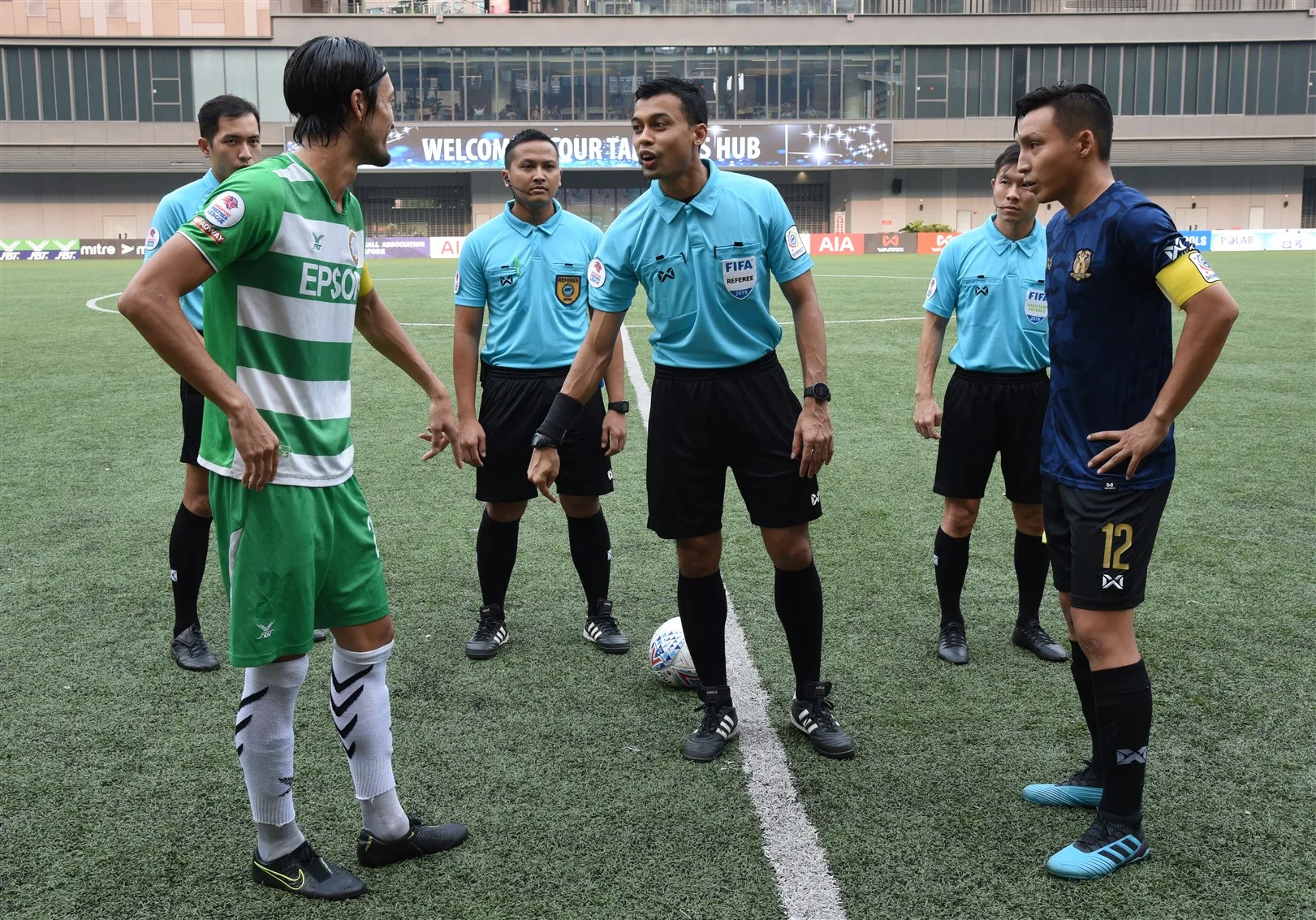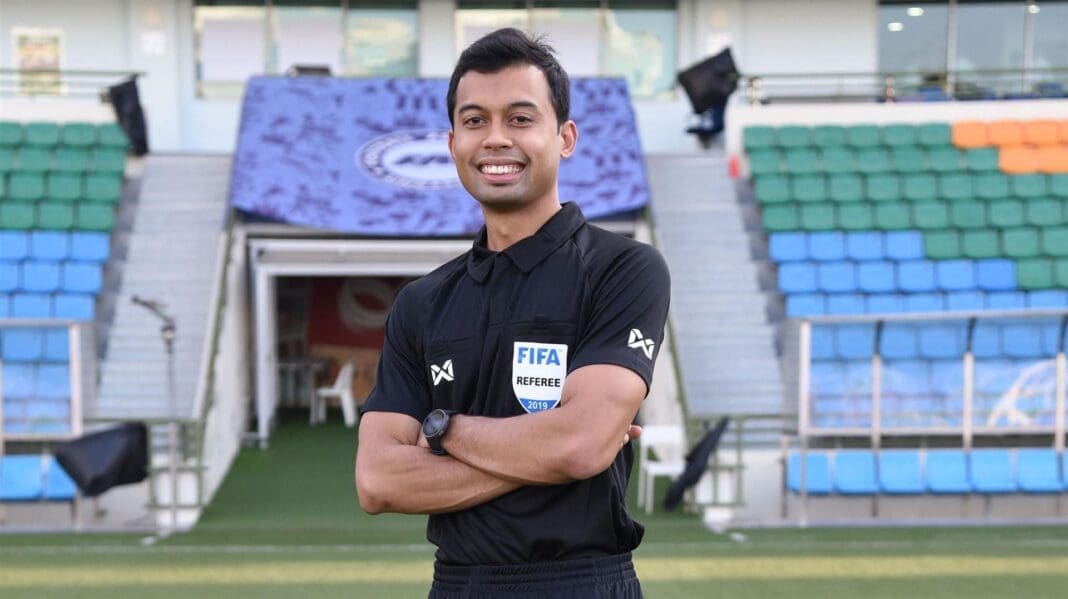We speak to Singapore referee Muhammad Taqi about donning the black and white.
It’s not the most glamourous position on the pitch. No, we’re not talking about being a defensive midfielder or goalkeeper. The referee has been a position that counts as one of the most thankless roles in football. They’re an easy target when it comes to attracting the ire of the coaches, players and thousands of fans.
So who in the right mind would look to own that whistle? We speak to one such person, Muhammad Taqi, who has been low-key one of Singapore’s brightest talents within football. High on his CV are games officiated in the FIFA U-20 World Cup and the AFC Champions League in a career that has spanned 17 years – and he’s only 33.
BOOTHYPE.com caught up with the man on his early days, receiving abuse and his experience with the big international competitions.
BOOTHYPE: So how did you get started as a referee?
Muhammad Taqi: I started my journey at the age of 16. I applied for the referee course with a group of friends. You can say I was being “pulled in” by my friends to join them. I had no idea what the course was about but they were already actively refereeing games. Their brothers and fathers were referees then. We were young punks compared to the others who were in their late 20s to early 30s! We had to do a variety of tests – from theory, fitness to practical.
Upon completing this, we were became “Class 3” referees which allowed us to referee grassroots games, friendlies, school games. For competitive games, our Class 3 license allowed us to referee U-15 games and some U-18 matches.
BOOTHYPE: So you became a Class 3 referee at 17 years old. What was next for you?
MT: The referee’s department within the Football Association of Singapore (FAS) will assign matches to you. Back then it was via phone calls to check in on your availability. When I was schooling, I had a lot of free time especially after my O’levels exams. It was a 6 month wait for the results and I was doing the 3 month stint with a JC. It was then when the school football season was running so I refereed a match every other day.
I started as an assistant referee, also known as a linesman, for games involving adults. Referees are usually set up in groups of 3 (1 main referee and 2 assistants) and I was seen as the small, timid one at that time. To further build my confidence, I took on the role of the main referee for primary school games.


BOOTHYPE: What kind of challenges did you have starting out?
MT: It’s never easy to be the main referee with the whistle, especially when you are that young. Some friendly matches you officiate involve adults. They see a “young punk” officiating a game and they’ll try to intimidate you.
In my first match that was assessed by another ref, I sent off 2 players, which after evaluating, I felt that it was harsh. It got me thinking when I got home on whether I should have continued being a referee. I still remember it clearly. When you are in the middle of the pitch, being harassed by the players, they surround you. Some of them were even ex-national players in Division 3 and they think they can eat you up. The feeling of being harassed can be very stressful.
BOOTHYPE: Are there a lot of support pillars to help referees cope with the stress?
MT: Back then, there wasn’t much. Before, the gap between an entry level Class 3 referee and a FIFA qualified referee was huge (there are Class 2 and 1 referees in between). You almost never meet the FIFA referee. If the FIFA referee happens to be your assessor, then you’re in luck. But I’m glad to have had my friends (who went to the course with me). We could always speak to their brothers and fathers to confide in them.
Today, there’s more open communication between the referees and the referee department.
BOOTHYPE: What makes a good referee?
MT: You’ll need a good understanding of the game and cope with the pace of today’s game which is really fast. As a FIFA-level referee, it’s also about consistency. One week, I’m officiating a local game, the next, an international tournament. You have to be as good in every game. The mentality is important and you should never take a game for granted.
On and off the field, a referee needs to show strength in his/her body language. Communication is also important – with coaches, players and your team members too. And of course, fitness. To have a good judgement of the game and fitness is not easy. I think, in Singapore, we need to groom our referees to be good in both traits.
The feeling of being harassed can be very stressful.
Muhammad Taqi
BOOTHYPE: Are all referees working full time?
MT: You can say we all work part time. In Singapore, we don’t have a referee who does this for a career. We all have full time jobs and we manage our time to referee on the side. We’re not like the pro players where we go for a full day of training with a fitness coach etc. Referees have coaches too but they’re all engaged by the Football Association of Singapore. These are former referees with international accreditation and are now assessing fitness and technical ability.
For me, I’m working at FAS and have been so for the last 3 years. I majored in finance and worked in a private firm. I (still have to) juggle work, refereeing and commitments at home. I had to take leave to referee international games and tournaments at my old work place.
BOOTHYPE: Tell us about some of your proudest moments as a referee
MT: I officiated a match in the Asian Champions League after 2 years as a FIFA referee which is the highest level club competition you can be involved in. A year later, I refereed in the AFC Asian Cup in Australia. It was a month-long event. In the same year, I was also involved in the FIFA U-20 World Cup.
BOOTHYPE: How did you balance your full time work and being involved in such big events?
MT: It was tough managing my work while being involved in the refereeing duties. A lot of late night work emails. We didn’t have a lot of downtime. We had tight schedules to prepare for each match during the tournament. We have match debriefings daily, practical training, recovery exercises between games and classroom sessions too. The only time we had for personal time was in the evenings.


BOOTHYPE: What’s training like?
MT: Especially during these international tournaments, they’re tough and competitive. The standards are very high. During practical training, we have 2 teams (pro or even amateur teams) who play a friendly match. Our instructors give these teams instructions to simulate incidents. We have instant video feedback as well. We cover topics like offside, teamwork between the referees and the assistants etc.
BOOTHYPE: Do you have any messages for players out there regarding refereeing?
MT: To young kids who love to play football, many of us want to be involved in football but we’re not sure the avenues to do so. Many want to represent the country in the team but there could only be 23 players in a team.
Refereeing is a great way for you to be involved in football (locally and internationally). It takes courage to hold the whistle on the pitch. Come to a refereeing course which we run quarterly. Be a referee and you’ll see that there’s a lot to learn besides just playing football.
Thank you so much to Muhammad Taqi and the Football Association of Singapore for sparing us their time for this interview and sharing the photos used in the article. For aspiring referees out there, you can apply for the referee’s course by clicking this link. For more community interviews, keep up to date with BOOTHYPE.com.



